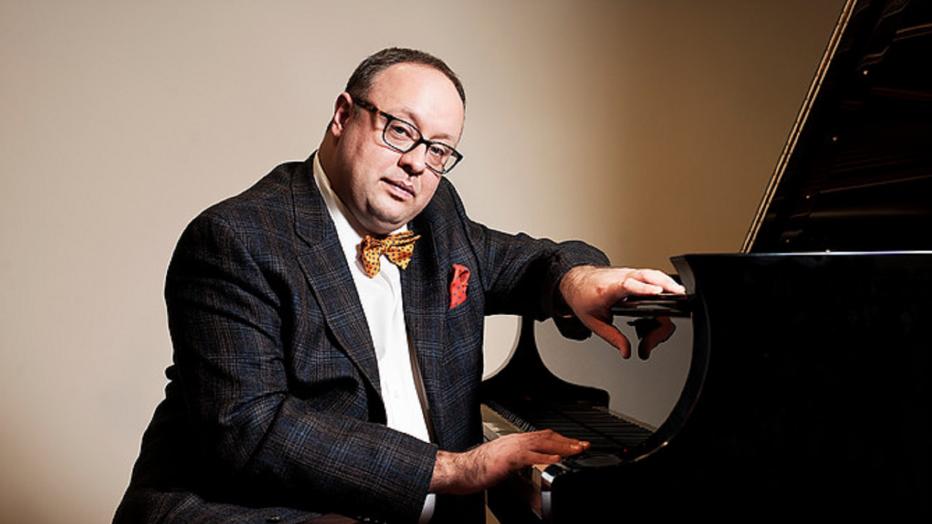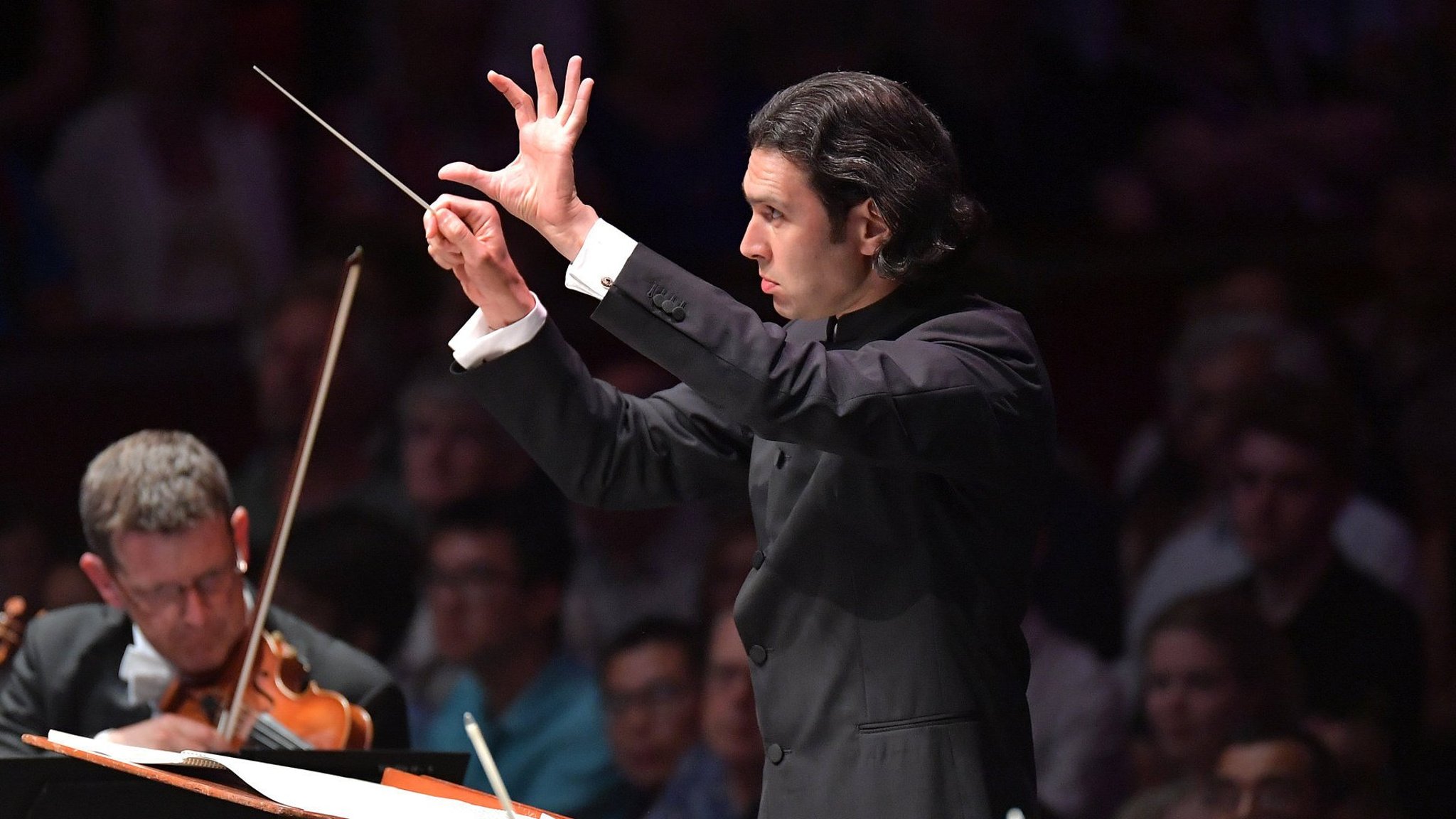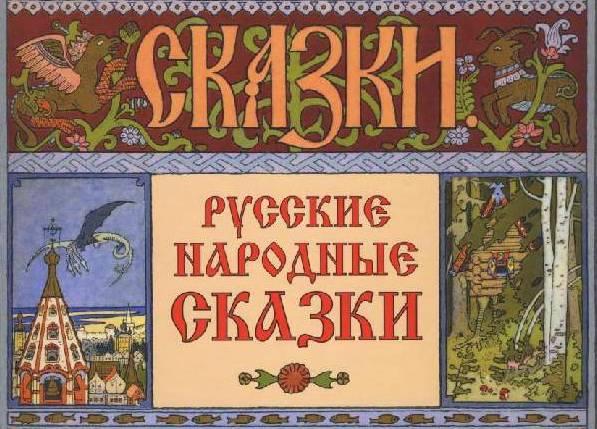It was a Disney theme-park of Russian music, and in an entirely good way: none of the usual rides, but plenty of heroes and villains, sad spirits and whistling witches, orientalia from the fringes of empire, pagan processionals and apocalyptic Orthodox chants. Soundwise, it would seem that Vladimir Jurowski had worked as carefully with the difficult Albert Hall acoustics as Stokowski had on an early form of stereo for Disney's Fantasia, for no orchestra has ever sounded better here than the London Philharmonic for this packed Saturday night Prom.
Rimsky-Korsakov's Mlada has come to us piecemeal at the Proms; it's gratifying to note that none of the numbers in the Suite which opened the latest all-Russian concert comes from the supernatural third act conducted here by Gergiev in 2004 - though that included the most outlandish number of all, Cleopatra's hoochie-koochie dance featuring pan-pipes and oriental drum. Jurowski made sure that all percussive details here were needle-sharp, and the LPO was able to show off some of the world's best woodwind players in the opening portrait of plaintive ghost Mlada. The rest is pomp and exotica, with plenty of panache in the oriental dances and showcasing of Korsakov's wonderful writing for three trumpets in the best-known number, the "Procession of the Nobles" from Paul Benniston, James Fountain and Anne McAneny.  The season's pursuit of "novelties" receiving their UK premieres under the baton of Proms founder Henry Wood was strongly featured here, and supported the idea which struck me that Holst surely took the horn-and-low-violin unison romps of The Planets' Jupiter from the Mlada Suite's concluding ceremonial. It was perhaps stretching the point a bit far to include the original version of Rachmaninov's First Piano Concerto, featured by Wood in 1900, the odd man out in term of long-term inspiration and improved by the composer in every way in his 1917 revision.
The season's pursuit of "novelties" receiving their UK premieres under the baton of Proms founder Henry Wood was strongly featured here, and supported the idea which struck me that Holst surely took the horn-and-low-violin unison romps of The Planets' Jupiter from the Mlada Suite's concluding ceremonial. It was perhaps stretching the point a bit far to include the original version of Rachmaninov's First Piano Concerto, featured by Wood in 1900, the odd man out in term of long-term inspiration and improved by the composer in every way in his 1917 revision.
Maybe it's interesting to champion first thoughts once in a whie, and Alexander Ghindin (pictured above) has already worked with Jurowski on this in the LPO's Rachmaninov Festival. The first-movement development seems purposeless and the concerto's ending sounds not nearly as brilliant as that of the mature composer. Nevertheless Ghindin is the right pianist for clear tumbling double octaves - as Argerich at 78 was not in Monday's performance of Tchaikovsky's First Piano Concerto - even if he couldn't conjure much atmosphere. There decidedly wasn't enough of the essence in his encore, the fourth of Rachmaninov's Moments musicaux in E minor: ferocious figuration impressively clear, but the right-hand upper line needed both more projection and more behind it.
The post-interval programme was Jurowski's work at its imaginative best. Malicious fairy-tale creatures Baba-Yaga and Kikimora paved the way for a short but extraordinary Revelation canvas in a trilogy of works by Lyadov, described by Stravinsky as "a short-winded, pianissimo composer" - but there are flashes of noisy naughtiness from the witch and the domestic trouble-maker, while From the Apocalypse, bewitchingly scored, has a pay-off capped by two sets of timpani. Again, it was the sharp focus within the hall that paid off, with spruce starts and deft final flecks for the progress of the two ghouls - Baba-Yaga through the air, Kikimora from a cradle song hypnotically intoned by Sue Bohling to the full-grown mischief-making of the seven-year-old pinhead.  As if there weren't Russian riches enough there, we also got a stalwart symphony too rarely in the repertoire; when did anyone last hear Glazunov's Fifth in the concert hall? Certainly the work hasn't been heard at the Proms since Wood conducted its UK premiere in 1897. The fat introduction unisons can sound ludicrous; here they were merely singular given the artistry of tuba-player Lee Tsarmaklis. Once the first movement takes off, it enacts its symphonic drama entirely through lilting, often waltzing song; how airborne this all was under Jurowski (pictured above by Chris Christodoulou at the 2016 Proms). Phenomenal articulation from the flutes, led by Juliette Bausor, underlined that this is one of the most charming of all sweetmeat scherzos - not that Glazunov or for that matter other leading Russian composers ever wrote a dull one.
As if there weren't Russian riches enough there, we also got a stalwart symphony too rarely in the repertoire; when did anyone last hear Glazunov's Fifth in the concert hall? Certainly the work hasn't been heard at the Proms since Wood conducted its UK premiere in 1897. The fat introduction unisons can sound ludicrous; here they were merely singular given the artistry of tuba-player Lee Tsarmaklis. Once the first movement takes off, it enacts its symphonic drama entirely through lilting, often waltzing song; how airborne this all was under Jurowski (pictured above by Chris Christodoulou at the 2016 Proms). Phenomenal articulation from the flutes, led by Juliette Bausor, underlined that this is one of the most charming of all sweetmeat scherzos - not that Glazunov or for that matter other leading Russian composers ever wrote a dull one.
True, Glazunov is merely playing with chords and lyricism in the Andante, but simply as contrast it works in tandem with the syncopated folk festival of the finale (no, not jazz, but Russian tradition, as Rachmaninov later developed it in the last of his Symphonic Dances). Let's hope this sets a trend for more LPO/Jurowski Russian extravaganzas at the Proms; the number of possible combinations is infinite. And audiences love it, as the full house's response made clear.














Add comment